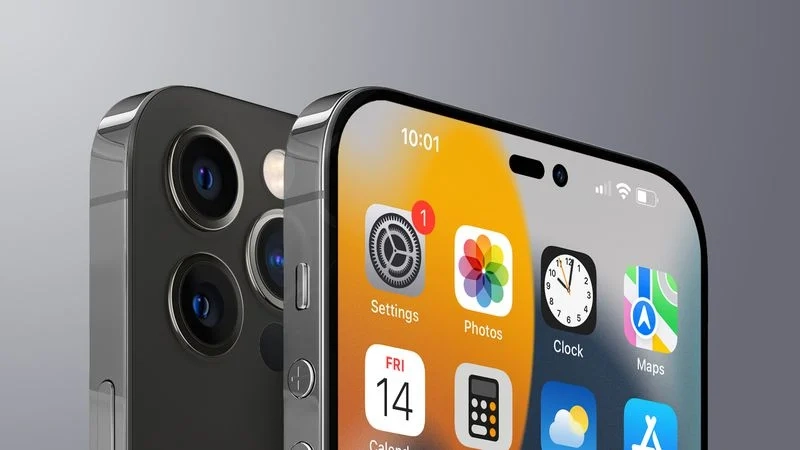Apple's next smartphone, the iPhone 14, could offer improved battery life and feature Wi-Fi 6E connectivity thanks to a new 5G chip.
As per MacRumors, the new chip will result in lower power consumption and at the same time, it will offer unmatched performance. The outlet quoted Taiwan's Economic Daily News as saying that the Taiwan Semiconductor Manufacturing Company (TSMC) has obtained Apple's orders for its 5G radio frequency (RF) chips for the iPhone 14 lineup, taking over from Samsung.
The chips, likely related to Apple's selection of Qualcomm's Snapdragon X65 modem, are purported to be produced using TSMC's 6nm process, which the supplier announced last year. TSMC said that the 6nm process for 5G RF chips can provide a physically smaller chip with lower power consumption.
The 6nm RF process enables the chip to use less power on both sub-6GHz and mmWave 5G bands while still providing a high level of performance. As well as being more efficient, shrinking the large RF transceiver component inside the iPhone is expected to free up space. Each additional square millimetre of space that is reclaimed is purported to create more room for a larger battery. Together, the improved efficiency and miniaturization of the RF chip are said to result in better overall battery life.
The RF transceiver chip is also reported to feature support for Wi-Fi 6E, in line with previous rumours claiming that the iPhone 14 lineup will support the upgraded connectivity.
Wi-Fi 6E offers the features and capabilities of Wi-Fi 6, including higher performance, lower latency, and faster data rates, extended into the 6GHz band. The additional spectrum provides more airspace beyond existing 2.4GHz and 5GHz Wi-Fi, resulting in increased bandwidth and less interference.
According to MacRumors, in 2019, Apple and Qualcomm settled a legal battle and reached a multiyear chipset supply agreement, paving the way for Apple to use Qualcomm's 5G modems.
A court document from the settlement revealed that Apple was planning to use the Snapdragon X60 modem, manufactured by Samsung, in the iPhone 13 lineup, followed by the Snapdragon X65 modem in the 2022 iPhone lineup.
Starting in 2023, Apple is expected to move away from Qualcomm's chips and implement its own custom-designed 5G modem in the iPhone.
Also Read: Military operation to 'demilitarize and denazify' Ukraine, says Russia




















